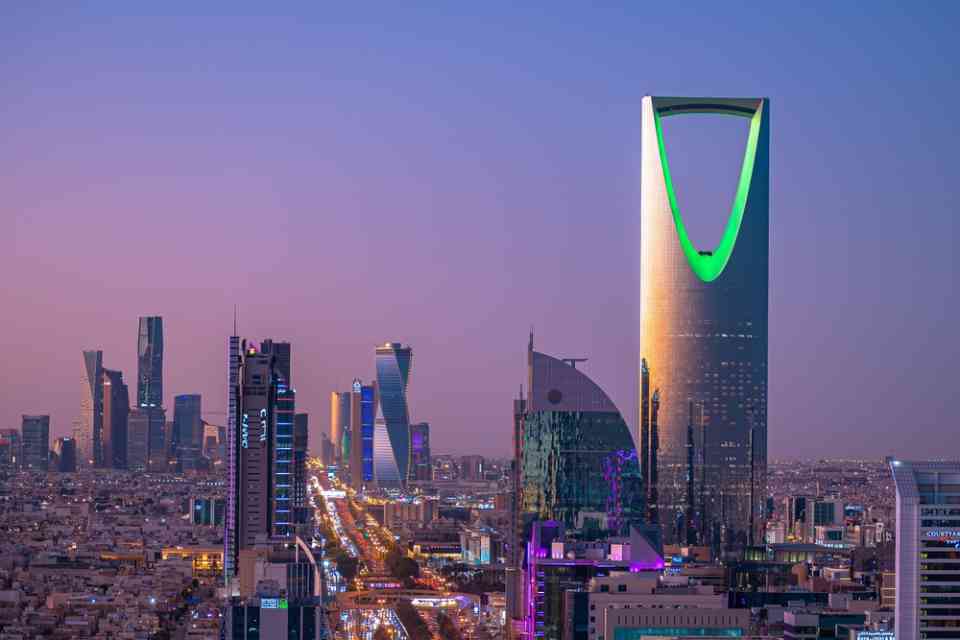PwC on Saudi Arabia’s Consumer Landscape: A Market Shaped by Innovation, Optimism, and Evolving Preferences

Saudi Arabia’s consumer market is undergoing a profound transformation, driven by a young, dynamic, and tech-savvy population eager to embrace new opportunities. This shift aligns with the Kingdom’s Vision 2030, which is reshaping the economy beyond oil dependency and fostering a diversified, forward-looking marketplace.
One of the most significant changes in recent years has been the increasing participation of Saudi women in the workforce, positioning them as both professionals and key consumer demographics. Business leaders remain highly optimistic about the Kingdom’s economic future, with 77% of Saudi CEOs expressing confidence in the economy’s outlook for the next year—well above regional and global averages. This optimism is supported by a growing consumer base that is not only tech-savvy but also environmentally conscious, shaping Saudi Arabia into a competitive and rapidly evolving market.
Rising Inflation and Health Risks: Key Consumer Concerns
Inflation remains a major concern, cited by 36% of Saudi consumers surveyed in PwC Middle East’s Voice of the Consumer 2024 report. Business leaders in the Kingdom echoed these concerns, identifying inflation alongside cyber risks, macroeconomic volatility, and workforce skill shortages as key challenges, according to the 28th Annual CEO Survey: KSA Findings.
Despite rising inflation rates in the second half of 2024, they remained lower than the global average, with non-oil growth in Saudi Arabia reaching 3.8% year-on-year in the first half of 2024, largely driven by private sector expansion. The International Monetary Fund (IMF) projects that Saudi economic growth will outpace the global average in 2025.
Health risks are another pressing concern, highlighted by 43% of Saudi consumers—a concern likely influenced by the high prevalence of chronic conditions such as diabetes and obesity in the region.
Evolving Retail Trends: A Blend of Traditional and Digital Experiences
While e-commerce and smartphone shopping continue to gain traction, in-store shopping remains relevant, with 49% of consumers still visiting physical retailers weekly or daily. Among in-store shoppers, 40% seek technologies that enhance convenience, such as self-checkout and real-time personalized offers, while 38% prefer mobile and contactless payment options.
Consumers are also increasingly comfortable making high-value purchases without physically seeing the product. Technology is a leading category for such “blind” purchases, with 66% of regional consumers opting to buy electronics online. The trend extends to luxury and designer items, with 48% of surveyed consumers purchasing them without prior physical inspection—surpassing both regional and global averages.
While 82% of consumers have yet to buy a car without seeing it, 44% expressed interest in doing so in the future, driven by advancements in virtual reality (VR) technology, which enables immersive customization and exploration of vehicles.
Additionally, over 50% of Saudi consumers stated that detailed product descriptions and accurate sizing information would make them less likely to return online purchases, highlighting the growing demand for transparency in online retail.
Social Media’s Influence on Shopping: Trust and Privacy Concerns
Social media remains a dominant force in brand discovery, influencing 76% of Saudi consumers, closely aligning with regional (78%) and global (67%) trends. However, many consumers remain hesitant to complete purchases directly through social platforms. 84% of respondents prefer to check company reviews before buying via social media, underscoring the importance of brand credibility.
Privacy concerns also play a significant role, with 65% of consumers worried about data sharing on social media, while 57% reported negative experiences when purchasing through these platforms. In response to these concerns, Saudi Arabia has enacted the Personal Data Protection Law (PDPL), enhancing digital security and consumer trust—an essential component of Vision 2030.
Despite these concerns, social media continues to influence purchasing decisions significantly, with 80% of Saudi consumers impacted by social media ads, compared to 72% globally. Retailer websites also play a key role, influencing more than 60% of consumers in their purchasing decisions.
Tourism and Entertainment Spending on the Rise
Saudi Arabia’s tourism sector has witnessed a 27.25% year-on-year increase in spending, reaching $6.68 billion in the three months ending in September. Meanwhile, spending by Saudi residents traveling abroad grew by 21.79%, according to data from the Saudi Central Bank (SAMA).
This surge in spending aligns with Vision 2030’s focus on tourism, hospitality, and entertainment as key economic growth drivers. Survey data revealed that 37.1% of Saudi consumers place high trust (9–10) in the hospitality & leisure industry, while 56.7% plan to increase their travel spending in the near future. Conversely, 15.8% intend to cut back on travel expenses.
The entertainment and media sectors are also gaining consumer trust, with 34.8% of Saudi respondents expressing high trust (9–10) in the industry. Looking ahead, 56.4% of consumers plan to spend more on electronic devices, reflecting increasing demand for entertainment and technology.
| GDP (nominal) | Capital | Head of State | Head of Government | GDP (nominal) per capita | GDP (PPP) | GDP (PPP) | GDP (PPP) per capita |
|---|---|---|---|---|---|---|---|
| Saudi Arabia | Riyadh | Salman bin Abdulaziz Al Saud | Mohammed bin Salman Al Saud | 1.069.437 | 32.586 | 2.390.000 | 68.453 |
Have you read?
Best Fashion Schools.
Best Universities.
Best Medical Schools.
Best International High Schools.
Countries: Most Female Billionaires.
Bring the best of the CEOWORLD magazine's global journalism to audiences in the United States and around the world. - Add CEOWORLD magazine to your Google News feed.
Follow CEOWORLD magazine headlines on: Google News, LinkedIn, Twitter, and Facebook.
Copyright 2025 The CEOWORLD magazine. All rights reserved. This material (and any extract from it) must not be copied, redistributed or placed on any website, without CEOWORLD magazine' prior written consent. For media queries, please contact: info@ceoworld.biz








